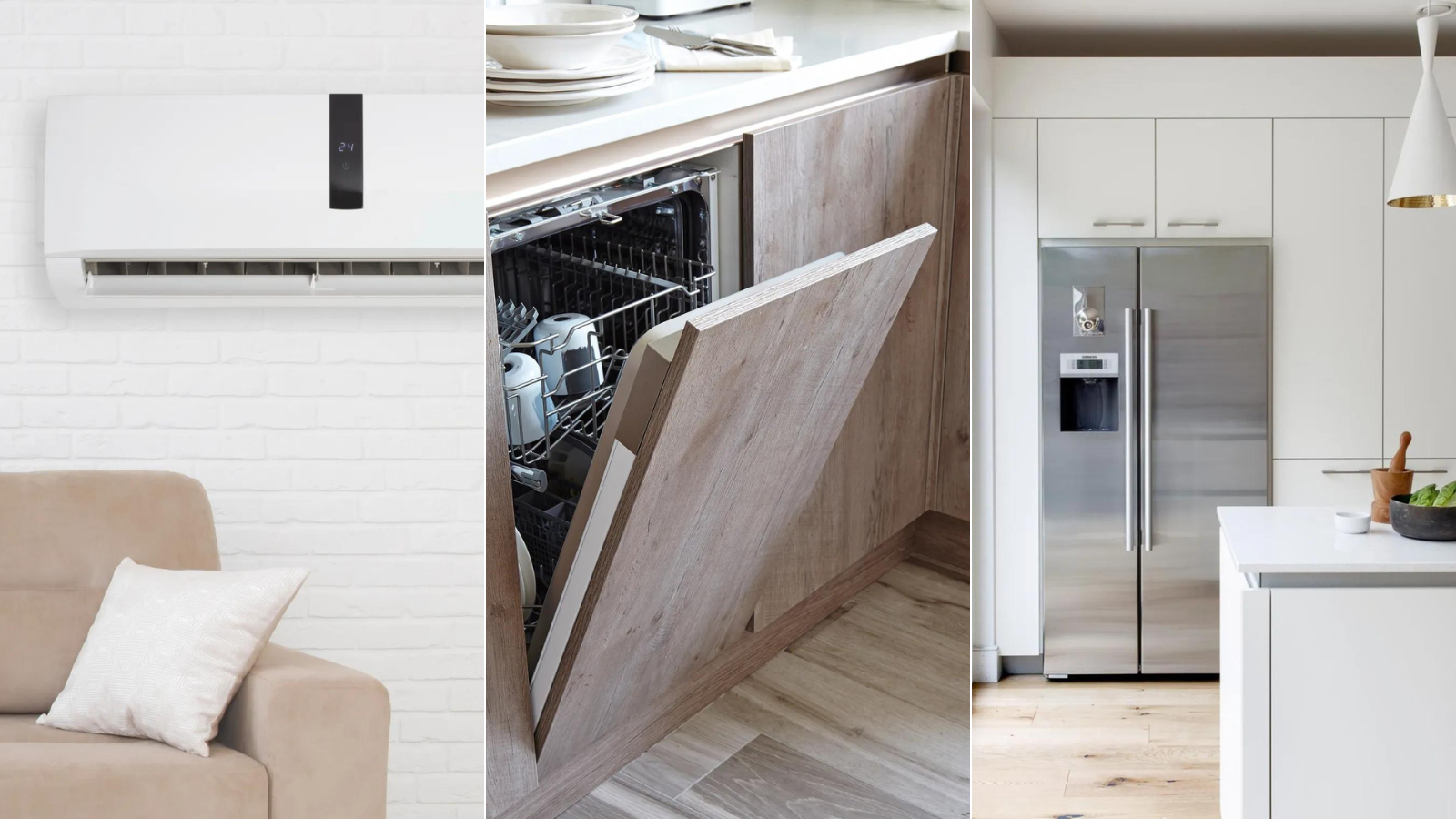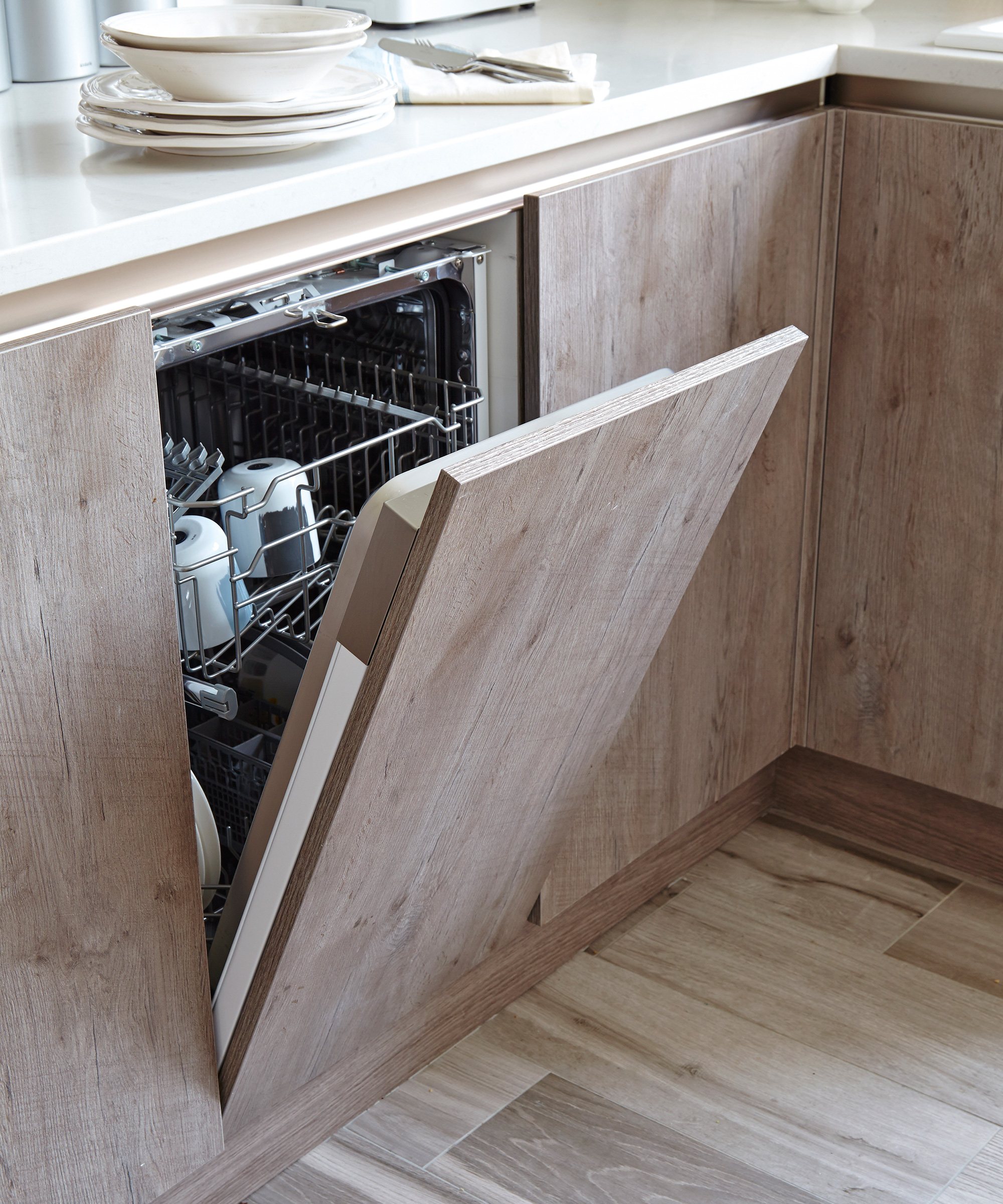5 simple appliance maintenance tasks to lower your energy bills
Incorporate these simple appliance maintenance tasks into your winter routine to help save money on your energy bills


With the holiday season over, now is a great time to implement cost-saving measures in your home. Cutting energy bills is an easy way to lower your overall costs, and by committing just 30 extra minutes each month to auditing your appliances, you can keep them running smoothly for years.
As well as knowing how to choose energy-efficient appliances, it is important to implement some easy measures to help make your current appliances work more effectively.
Our experts have identified five regular maintenance tasks to help keep your home appliances organized, running optimally, and protected for years to come. Taking a little extra time really pays off. Here's what they said.
Easy appliance maintenance tasks that can lower your energy bills
Learn how to cut energy bills with these easy appliance maintenance methods.
1. Clean refrigerator coils

According to Josh Mitchell, HVAC technician and owner of Air Conditioner Lab, our refrigerator is one of the most significant energy consumers in your home. Taking just ten minutes to ensure all the surfaces where the fridge and freezer doors close up are sealing air out makes a big difference.
Over time, the coils on the back or bottom of your refrigerator can accumulate dust and pet hair, forcing it to work harder and consume more energy. Cleaning these coils every six months can improve your refrigerator's efficiency by up to 30%. Simply unplug the fridge, locate the coils, and use a coil brush, like this one from Amazon, or vacuum to remove debris.
If properly cared for, a fridge will repay the time spent on it with long-term savings on your energy bills.
Design expertise in your inbox – from inspiring decorating ideas and beautiful celebrity homes to practical gardening advice and shopping round-ups.

Josh is an appliance expert and the owner of the Air Conditioner Lab with years of experience tackling the challenge of home cooling. Josh has explored various innovative methods to cool down living spaces during hot weather.
2. Seal leaks and monitor your HVAC system
Sealing up cracks and adding insulation to your attic, windows, and walls can reduce heat loss in the winter and heat gain in the summer, leading to significant savings of around 25-30% per year.
‘Leaky ducts in your home can lose up to 30% of airflow, causing your HVAC system to work harder and increase your energy bills,’ says Julia Ivanova from New Era Plumbing & HVAC. 'Checking your ductwork for leaks and sealing them with duct sealant or metal-backed tape can make a significant difference.’
An affordable way to seal gaps in windows is using ATack Transparent Isolation Surface tape from Amazon to prevent drafts. You could also consider installing secondary glazing panels or weatherproofing your windows to combat heat loss.
Your heating and cooling system's air filters trap dust, pollen, and other particles. When they become clogged, your system has to work harder to circulate air, leading to increased energy consumption. By checking and replacing your HVAC filters every 30-90 days, you can reduce your air conditioner's energy consumption by 5-15%. It's a small task with big returns in both energy savings and prolonging the life of your system.
You could also choose to upgrade your heating, ventilation, and air conditioning system to a more efficient model for larger savings, as newer HVAC systems are more efficient. Consider buying used appliances to save money on this pricey upgrade.
Julia Ivanova works for New Era Plumbing & HVAC, with over 15 years of experience serving Dracut and surrounding regions. They are a locally owned and operated plumbing & HVAC company specializing in inspection, repair, and replacement services.
3. Adjust the temperature of your water heater
Many water heaters are set to 140 degrees Fahrenheit by default, but lowering the temperature to 120 degrees can reduce your water heating costs by up to 10%. This simple adjustment not only saves energy but also prevents scalding and slows mineral buildup and corrosion in your heater and pipes.
If your water heater is over 10 years old, consider replacing it with a more energy-efficient model. Energy-efficient water heaters can use 75% less energy to heat water.
Learn more ways to reduce your water bills.
4. Optimize dishwasher use

Learn how to clean a dishwasher filter to ensure it runs more efficiently. This can potentially shorten cycle times and save energy. Dishwasher filters sometimes get clogged, so regularly cleaning your dishwasher will keep things running.
Run your dishwasher with full loads and use the energy-saving mode if available. Scrape dishes instead of pre-rinsing, saving both water and energy. Your dishwasher's heat-dry setting uses a significant amount of energy. By turning off the heat and letting your dishes air dry, you can cut your dishwasher's energy use by up to 50%.
5. Remove idle electronic devices
‘Unplug devices and chargers when not in use to prevent phantom power consumption,’ recommends Tony Pennix, CEO of TechDHome. ‘Many electronic devices draw power even when turned off or in standby mode. By unplugging or using smart power strips to cut off power to these idle devices, you can save money over time.’
There are a number of timing devices for electrical outlets available to buy, such as the Century Indoor 24-Hour Mechanical Outlet from Amazon, which will automatically turn off your electrical appliances after a certain time period and will further help reduce your energy bills.

Tony is the CEO of TechDHome. He has extensive experience in home appliance efficiency and maintenance, working closely with various home systems, gaining insights into practical ways to lower energy bills.
FAQs
Why is my smart meter going up so fast?
One common cause for your smart meter to increase quickly is that one or more of your appliances may be faulty. Check them one by one to identify the cause. If none of them affect the meter reading, then it may be the meter itself that would need to be changed.
Implementing these simple appliance maintenance tasks can lead to significant savings on your energy bills while also prolonging the life of your appliances. Remember, a little effort goes a long way in energy conservation and cost savings.

Seraphina is a contributing editor at Homes & Gardens, writing Solved features on organizing and storage. She loves to decorate and also grow her own produce from her home in London. Her previous experience includes working at Women's Health and Fabulous Magazine.